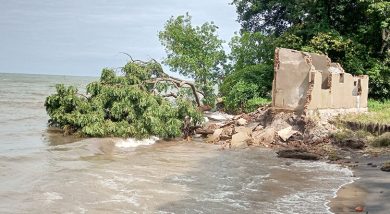Chilima visits disaster victims, urges relocation
Raindrops kept hammering rusty iron sheets of an evacuation camp when Vice-President Saulos Chilima visited disaster victims in Mzuzu and observed a minute of silence in memory of six people killed by effects of the incessant rains.
Torrential rains have disrupted lives of about 17 000 people in Mzuzu City.
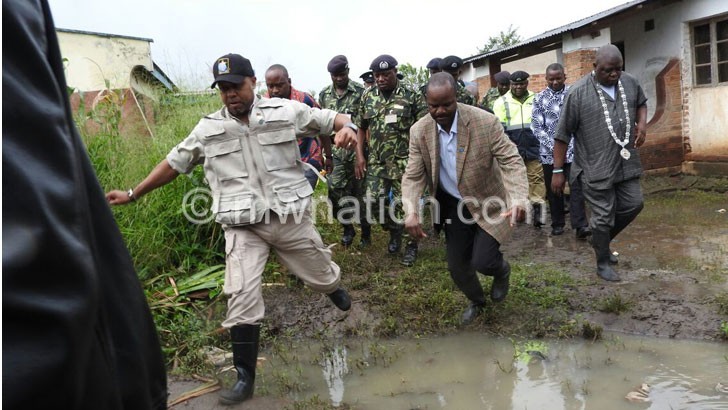
It was at 12.50pm at Heaven is Here Church in Masasa Township, but there was nothing heavenly for the displaced population and city residents as the heavy rains poured for the 10th day without relenting.
More rains mean more trouble for the people in unsanitary congested camps after their settlements were damaged. Their prayer is for a return of sunny days to recover.
During his visit, the Vice-President toured some of the worst affected areas in the marshy slums of Chibanja and Salisbury Lines as well as the hilly squatter settlements of Masasa.
Chilima was visibly shocked not only by the scale of destruction summed up by the collapse of almost 1 880 houses by Monday evening, but just how the houses mushroomed in the risky area under the watch of a city council with town-planners on its payroll.
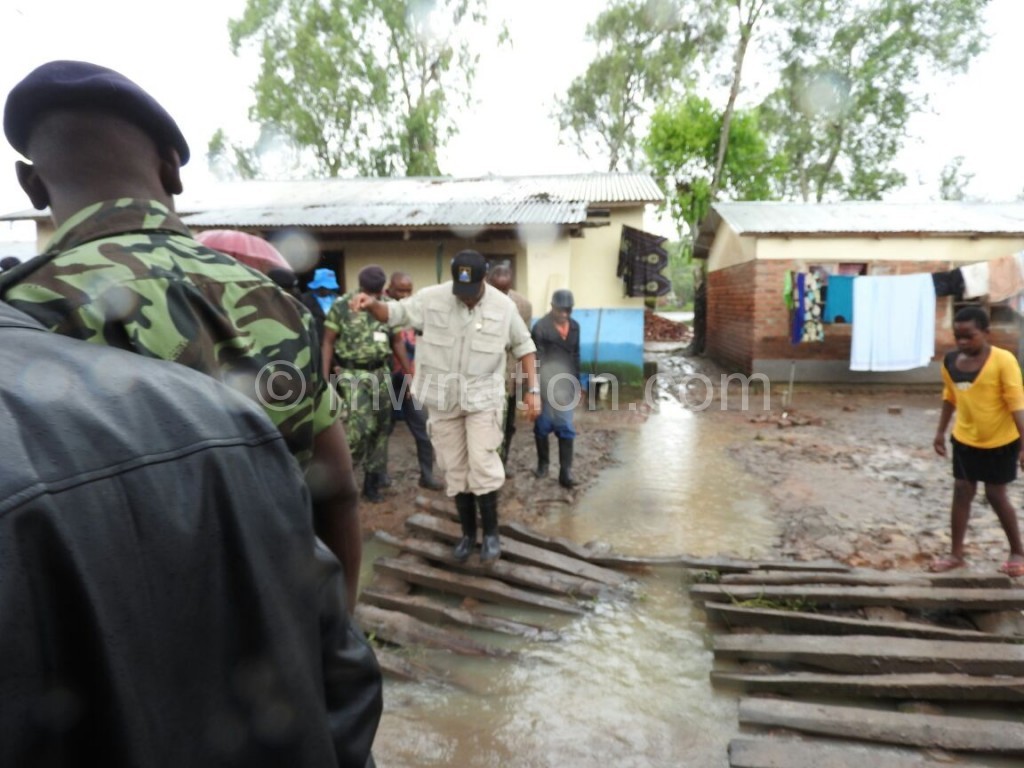
Jere Ngoni Paramount Chief, Inkosi ya Makosi M’mbelwa V said tragedies the size that has hit Mzuzu offer numerous reasons for policy shifts and behaviour change.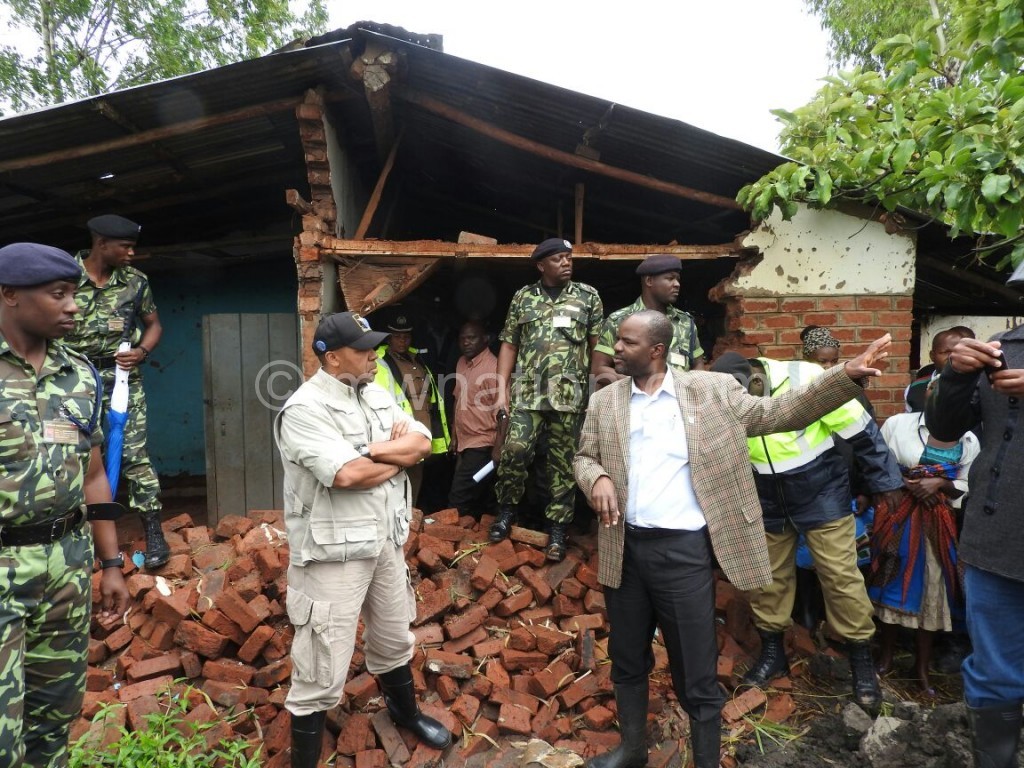
However, Chilima appealed to people living in vulnerable areas to relocate to safe and higher grounds as said President Peter Mutharika last year in the speech Building a Resilient Nation which shaped the country’s rise from what he termed the worst disaster in history as it displaced about 230 000 Malawians—with 276 killed or missing.
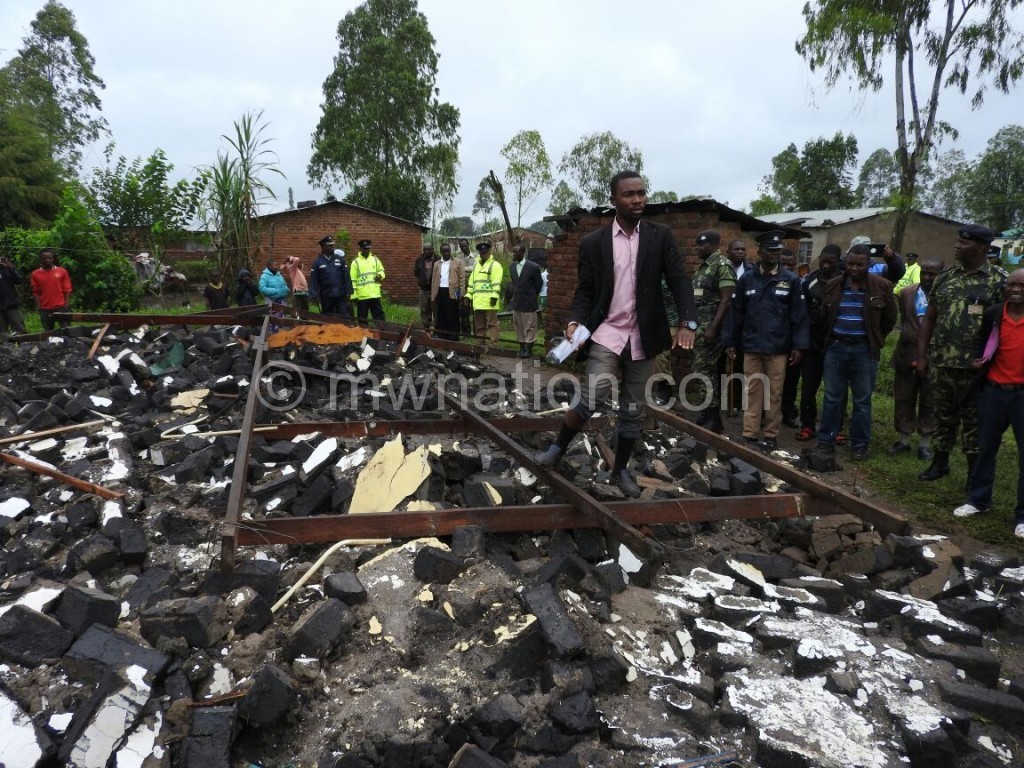
Clad in a khaki bib with a matching combat pair of trousers tucked in gumboots, the Vice-President was perfectly geared for the dirty work. He was seen hopping from one rubble to another with no umbrella to shield himself from whipping rains.
When he called for an umbrella, Chilima held it by himself as the downpour’s intensity increased in Chibanja Township.
He described the situation in the soggy densely populated setting as “very depressing” because of lack of drainage system to eject water from Katoto to the nearest river. Apparently, people blocked the existing drainage to build houses willy-nilly.
Observed Chilima: “If the drainage system was there and unoccupied, we wouldn’t have had a big problem as we have today. Nobody has spare resources so that every year we are going to respond to disasters with the same speed. We have competing needs: we want schools, hospitals, good roads and safe water.”
When Mzuzu City Council chief executive officer Macleod Kadam’manja drew the Vice-President’s attention to a house where two children were killed as its walls collapsed, Chilima was overheard: “We have to relocate these people first because we will be back here next year if we don’t find proper land for them.”
Masasa Ward councillor Yona Mkandawire and Mzuzu City legislator Leonard Njikho urged the Vice-President to help eliminate the land laws that seem to favour the rich and push the poor to occupy disaster zones.
Chilima, who donated 500 bags of maize flour, salt, beans, soap and assorted items, asked well-wishers not to relent helping the survivors of the raging catastrophe saying: “Your neighbour’s tragedy is your problem.”
He also hinted at a three-pronged strategy to break the disaster vicious cycle comprising conservation of deforested areas, construction of dams and dykes to calm risky waterways and enhancing agriculture for food security.



